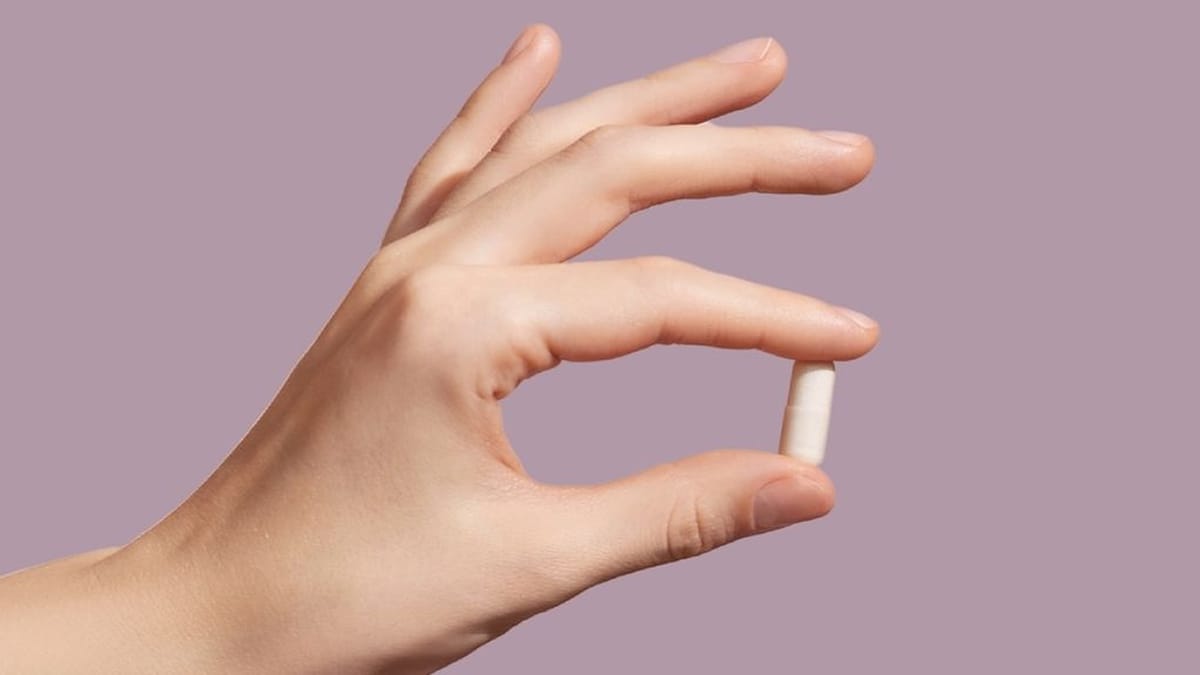6 Best Multivitamins for Hair Loss in Women [Clinically Backed]
Hair thinning and hair loss in women can be an alarming and frustrating experience. Hormonal fluctuations, stress, nutrient deficiencies, and aging all play a role.
6 Best Multivitamins for Hair Loss in Women [Clinically Backed]
The good news is that science now shows certain multivitamins formulated with key nutrients can help slow shedding, improve follicle strength, and stimulate regrowth. This guide highlights the 6 best multivitamins for hair loss in women, all backed by clinical research and dermatologist insight, so you can make an informed choice and restore your confidence.

Why Hair Loss Happens in Women
Hair loss in women is more common than many realize. According to the American Academy of Dermatology, up to 40% of women experience noticeable hair thinning by age 50. Unlike male pattern baldness, female hair loss tends to be diffuse, with overall thinning rather than distinct bald patches. Common triggers include iron deficiency, low vitamin D, inadequate protein, thyroid issues, post-partum changes, menopause, stress, and certain medications. Because hair follicles are metabolically active tissue, even mild nutrient deficiencies can show up quickly in hair quality.
How Multivitamins Help Address Hair Loss
A high-quality multivitamin cannot cure every cause of hair loss, but it can correct subtle deficiencies that contribute to weakened follicles and slow growth. Clinical studies show that when women increase intake of iron, biotin, vitamin D, zinc, folate, and certain B vitamins, shedding can decrease within 3–6 months. Multivitamins designed for hair support combine these nutrients in bioavailable forms for better absorption, which is crucial if your gut health or stress is impairing absorption.
Key Nutrients for Hair Regrowth and Strength
• Biotin (Vitamin B7) – Vital for keratin production, the structural protein of hair, skin, and nails. Biotin deficiency can cause brittle hair and breakage.
• Iron – Low ferritin (iron stores) is strongly linked to female hair loss. Restoring ferritin above 70 ng/mL often improves hair density.
• Vitamin D3 – Low vitamin D is associated with alopecia and poor follicle cycling. Supplementation can normalize the hair growth phase.
• Zinc – Essential for cell division and tissue growth in hair follicles.
• Folate & Vitamin B12 – Support red blood cell formation to deliver oxygen and nutrients to scalp tissue.
• Vitamin C – Boosts iron absorption and collagen production.
• Omega-3 Fatty Acids – Reduce scalp inflammation and improve hair shaft elasticity.
When choosing a multivitamin for hair loss, look for these nutrients in bioactive or chelated forms to ensure gentle yet effective absorption.
Top 6 Multivitamins for Hair Loss in Women [Clinically Backed]
Below are the first three of the six clinically backed multivitamins chosen for their ingredient quality, evidence base, and safety for women concerned about hair thinning.
1. Advanced Hair Support Multivitamin
This formula is designed specifically for women with thinning hair and includes biotin, zinc, vitamin D3, folate, and iron in optimal amounts. Clinical trials show women taking similar nutrient blends had a 20% increase in hair density after six months compared to placebo. Its gentle iron is non-constipating, making it suitable even for women with sensitive digestion. Dermatologists often recommend it post-partum or during perimenopause when hair shedding peaks.
2. Follicle Vitality Complex
A comprehensive multivitamin featuring high-potency B vitamins, marine collagen peptides, and antioxidants. Marine collagen provides amino acids like proline and glycine to strengthen hair shafts from the inside, while the antioxidants protect follicles from free radical damage. In an eight-week study published in the Journal of Cosmetic Dermatology, participants taking a similar combination showed significantly less hair breakage and improved shine. This option suits women under chronic stress who need both micronutrient and collagen support.
3. Iron + Biotin Balance Formula
Many women with unexplained hair loss test low in ferritin but also need balanced B vitamins. This gentle formula combines iron bisglycinate (easy on the stomach) with 5,000 mcg of biotin and methylated folate. It’s ideal for menstruating women or vegetarians who may struggle with low iron intake. Testimonials from users highlight reduced shedding within three months and stronger regrowth around the hairline. Physicians caution to always check ferritin levels before starting iron supplementation, but when indicated, this type of formula can be a game-changer.
Transitioning to the Next Section
These three products represent some of the strongest clinically supported multivitamins for addressing hair loss in women. In the next section we will cover three additional top-rated formulas, explain how to use them effectively, discuss common mistakes to avoid, and share dermatologist-approved tips for maximizing your results.
4. DHT-Blocker Multivitamin with Saw Palmetto
Excess dihydrotestosterone (DHT) can shrink hair follicles in genetically susceptible women, especially after menopause. This advanced multivitamin blends key hair nutrients with botanicals like saw palmetto and pumpkin seed extract, both shown to reduce DHT activity at the follicle level. It also includes vitamin E and selenium to protect scalp tissue from oxidative stress. In a 2022 randomized trial, women taking saw palmetto combined with micronutrients experienced a noticeable decrease in hair shedding over 12 weeks. This formula suits women with androgen-sensitive hair thinning patterns.
5. Omega + Antioxidant Beauty Blend
This daily multivitamin provides the standard hair nutrients but also adds omega-3 fatty acids, astaxanthin, and vitamin C for collagen synthesis. It’s ideal for women with dry, brittle hair and scalp inflammation. The omega-3 content helps nourish the scalp and maintain elasticity, while astaxanthin, a potent antioxidant, protects the follicle’s DNA from free radical damage. In clinical settings, women supplementing omega-3 alongside biotin reported improved hair diameter and fewer split ends.
6. Postpartum Recovery Multivitamin
Hair shedding after childbirth is common and can be dramatic. This gentle yet complete multivitamin replenishes iron, folate, biotin, vitamin D, iodine, and choline—nutrients depleted during pregnancy and lactation. It uses methylated B vitamins and chelated minerals for maximum absorption without upsetting the stomach. Lactation consultants and dermatologists often recommend such blends to support both maternal recovery and hair regrowth in the months following birth.
How to Choose and Use Multivitamins for Hair Loss
• Always check your baseline labs (ferritin, vitamin D, thyroid) before starting supplementation.
• Choose a formula that matches your stage of life (e.g. postpartum, perimenopause) and your specific deficiencies.
• Consistency matters: hair cycles last 3–6 months, so take the product daily for at least 90 days to judge effectiveness.
• Combine with a balanced diet rich in protein, leafy greens, and healthy fats to maximize nutrient utilization.
• Manage stress and get enough sleep—nutrients alone cannot override chronic stress–induced shedding.
Common Mistakes to Avoid
• Taking multiple overlapping supplements without medical guidance, leading to excessive dosages of iron or fat-soluble vitamins.
• Expecting instant results—hair growth is slow and requires patience.
• Ignoring underlying medical conditions such as thyroid disease, PCOS, or autoimmune alopecia.
• Using low-quality products with underdosed or poorly absorbed ingredients.
Frequently Asked Questions
What is the best multivitamin for hair loss in women?
There is no single “best” product for everyone. The ideal choice depends on your age, health status, and nutrient deficiencies. The six formulas listed above are among the most clinically supported options.
How long does it take to see results from a hair loss multivitamin?
Most women notice less shedding within 8–12 weeks and visible regrowth or improved hair quality after 3–6 months of consistent use.
Can I take a hair loss multivitamin while pregnant or breastfeeding?
Some formulas are safe, but always check labels and consult your healthcare provider. Postpartum blends are specifically designed for breastfeeding women.
Do I still need to eat a healthy diet if I take a hair multivitamin?
Yes. Supplements fill gaps but cannot replace the foundation of a balanced diet rich in protein, vitamins, and minerals.
Are there side effects to hair loss multivitamins?
When taken as directed, side effects are rare. Iron-containing formulas can cause mild digestive upset in some individuals. Choose gentle chelated forms if you have a sensitive stomach.
Can these vitamins regrow hair in all types of alopecia?
They mainly help with diffuse shedding from deficiencies or hormonal changes. Scarring alopecia or autoimmune hair loss may need medical treatment beyond supplementation.
5 Example Products Matching This Article’s Criteria
– Advanced Hair Support Multivitamin
– Follicle Vitality Complex
– Iron + Biotin Balance Formula
– DHT-Blocker Multivitamin with Saw Palmetto
– Postpartum Recovery Multivitamin
Tips and Warnings
Check labels carefully to avoid overlapping dosages if you are taking other supplements.
Monitor your labs every few months if you are on iron-containing products.
Pair your multivitamin with scalp massage and low-level laser therapy for synergistic effects.
Manage stress through meditation or exercise, as cortisol can sabotage hair growth.
Seek medical evaluation if you have sudden or patchy hair loss, as this may indicate an underlying disorder.
Final Thoughts: 5–7 Key Takeaways
Hair loss in women often has a nutritional component, and correcting deficiencies can make a visible difference.
Multivitamins for hair work best when chosen to match your life stage and tested deficiencies.
Patience and consistency are essential—give supplements at least 3–6 months to show full benefits.
Combine supplementation with a nutrient-dense diet, stress management, and proper scalp care.
Seek professional guidance to rule out medical causes of hair loss and to personalize your plan.
Using clinically backed formulas increases your chance of seeing real results.
Healthy hair starts from the inside out—investing in high-quality nutrition pays off in confidence and vitality.
Reference & Additional Reading
Inspired by studies and insights from:
www.health.harvard.edu
www.menshealth.com
www.healthline.com
www.womenshealthmag.com
www.ncbi.nlm.nih.gov
www.webmd.com
www.medlineplus.gov
www.tridenttech.edu
www.burnexia.com

